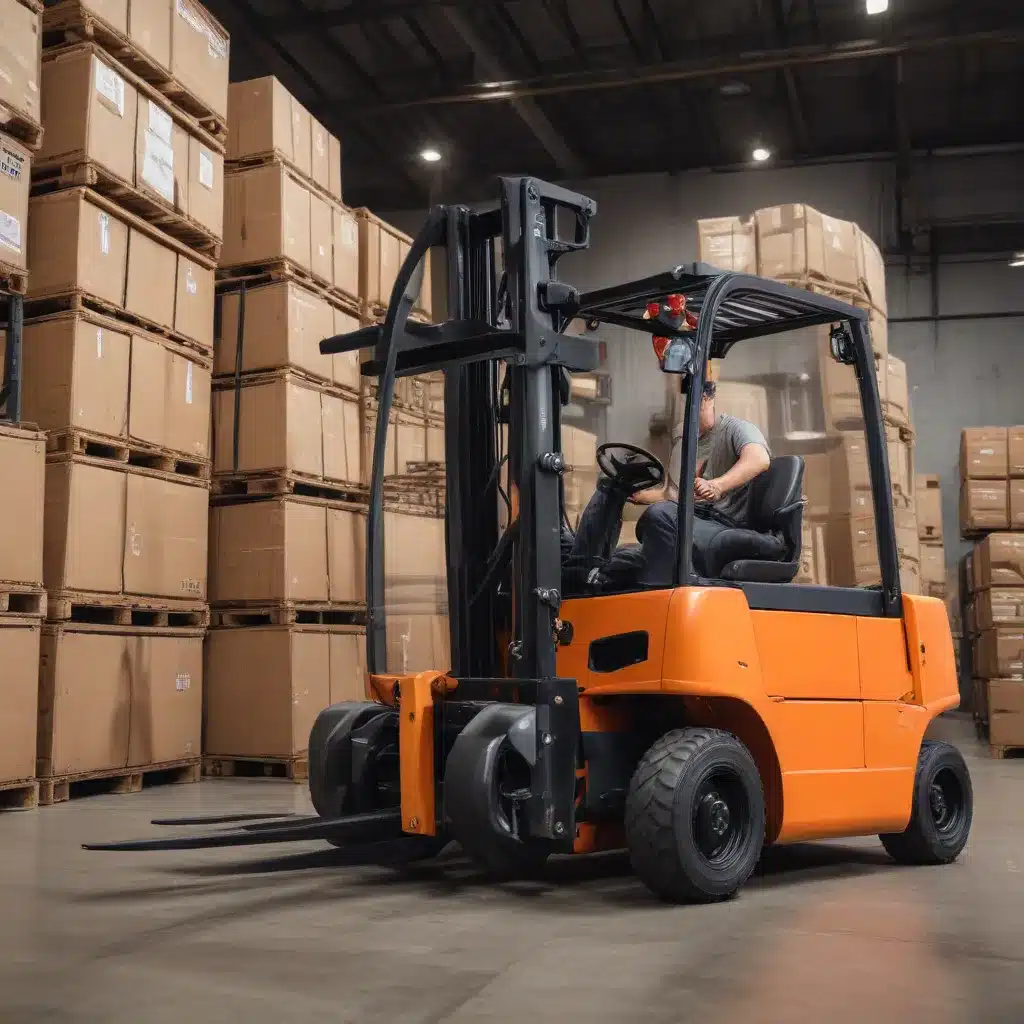
The Importance of Situational Awareness in Forklift Operations
As a seasoned industry expert in forklifts, warehousing, and logistics, I’ve witnessed firsthand the critical role that situational awareness plays in ensuring the safety and efficiency of forklift operations. In the dynamic and often unpredictable environments where forklifts operate, maintaining a keen awareness of one’s surroundings, potential hazards, and the behavior of the equipment is paramount.
Forklift operators face a multitude of challenges on a daily basis, from navigating tight spaces and maneuvering heavy loads to dealing with unexpected obstacles and equipment malfunctions. Situational awareness – the ability to perceive, comprehend, and project the current state of the environment – is the cornerstone of safe and effective forklift operations. By cultivating this essential skill, operators can anticipate potential risks, make informed decisions, and react swiftly to mitigate hazards.
Identifying and Addressing Situational Awareness Challenges
One of the primary challenges in fostering situational awareness among forklift operators is the inherent complexity of the work environment. Warehouses, distribution centers, and manufacturing facilities are bustling with activity, often featuring narrow aisles, stacked pallets, moving pedestrians, and a variety of equipment in motion. Operators must constantly scan their surroundings, monitor the behavior of their forklift, and anticipate the actions of others to maintain a clear understanding of the situation.
Additionally, forklift operations can be disrupted by a range of unpredictable factors, from equipment malfunctions and inclement weather to unexpected distractions and medical emergencies. Operators must be prepared to recognize and respond to these dynamic situations, as even minor lapses in attention can have serious consequences.
Enhancing Situational Awareness through Simulation-Based Training
To address these challenges and cultivate a culture of safety and readiness, progressive forklift training programs are increasingly incorporating simulation-based learning techniques. These innovative tools, such as those developed by CM Labs Simulations, allow forklift operators to experience a wide range of realistic scenarios in a safe and controlled environment.
One of the standout features of these simulation platforms is the ability to introduce dynamic fault injection, where instructors can trigger unexpected equipment failures, environmental changes, and other disruptions during the training session. This approach exposes operators to high-risk situations that would otherwise be unsafe or impractical to recreate on actual equipment, ensuring they are better prepared to respond effectively in the real world.
By incorporating dynamic fault injection into their training regimen, forklift operators can develop the essential skills needed to maintain situational awareness, even in the face of unexpected challenges. They learn to identify potential hazards, make quick decisions, and take appropriate actions – all while reinforcing the importance of focus, critical thinking, and problem-solving.
Developing a Comprehensive Approach to Forklift Safety
Fostering situational awareness is just one component of a comprehensive approach to forklift safety. Effective forklift operator training must also address a range of other crucial elements, including:
-
Equipment Familiarization: Operators must thoroughly understand the capabilities, handling characteristics, and safety features of the specific forklift models they will be using.
-
Load Management: Proper load assessment, load securement, and load distribution techniques are essential for maintaining stability and control.
-
Environmental Awareness: Operators must be attuned to the unique layout, obstacles, and traffic patterns of the work environment, adapting their driving accordingly.
-
Safety Protocols: Strict adherence to established safety protocols, such as proper mounting and dismounting procedures, speed limits, and right-of-way rules, is critical.
-
Ongoing Evaluation and Feedback: Regularly assessing operator performance, providing constructive feedback, and reinforcing best practices are key to sustaining a culture of safety.
By addressing these various aspects of forklift operations, organizations can cultivate a workforce of highly skilled, situationally aware, and safety-conscious forklift operators – ultimately reducing the risk of accidents and enhancing overall productivity.
Embracing Innovation and Leveraging Technology
As the forklift industry continues to evolve, organizations are increasingly recognizing the value of embracing innovative technologies and training methodologies to enhance operator safety and performance. Beyond simulation-based training, the integration of sensor-based monitoring systems, augmented reality (AR) overlays, and predictive analytics can provide forklift operators with real-time feedback and decision-support tools.
For example, some forklift models are now equipped with advanced sensors that can detect potential hazards, such as pedestrians or objects in the path of the vehicle. These systems can then provide audible and visual alerts to the operator, allowing them to react swiftly and avoid potential collisions. Similarly, AR-based solutions can overlay critical information directly into the operator’s field of vision, streamlining their access to essential data and reducing the risk of distraction.
By leveraging these cutting-edge technologies, forklift operators can further strengthen their situational awareness, make more informed decisions, and respond more effectively to dynamic conditions – ultimately contributing to a safer and more efficient work environment.
Cultivating a Culture of Forklift Safety
Ultimately, the cultivation of situational awareness among forklift operators is not just about individual skill development; it’s about fostering a comprehensive culture of safety within the organization. This culture must be championed by leadership, reinforced through comprehensive training programs, and supported by the adoption of innovative technologies and best practices.
By prioritizing situational awareness and proactively addressing the unique challenges faced by forklift operators, organizations can not only enhance the safety and well-being of their workforce but also drive significant improvements in operational efficiency, productivity, and overall competitiveness.
As a seasoned industry expert, I encourage all forklift operators, supervisors, and safety professionals to embrace the principles of situational awareness and leverage the latest advancements in training and technology to elevate the standards of forklift safety in their respective domains. By doing so, we can collectively contribute to the creation of safer, more resilient, and more productive workplaces that benefit both employees and the bottom line.

